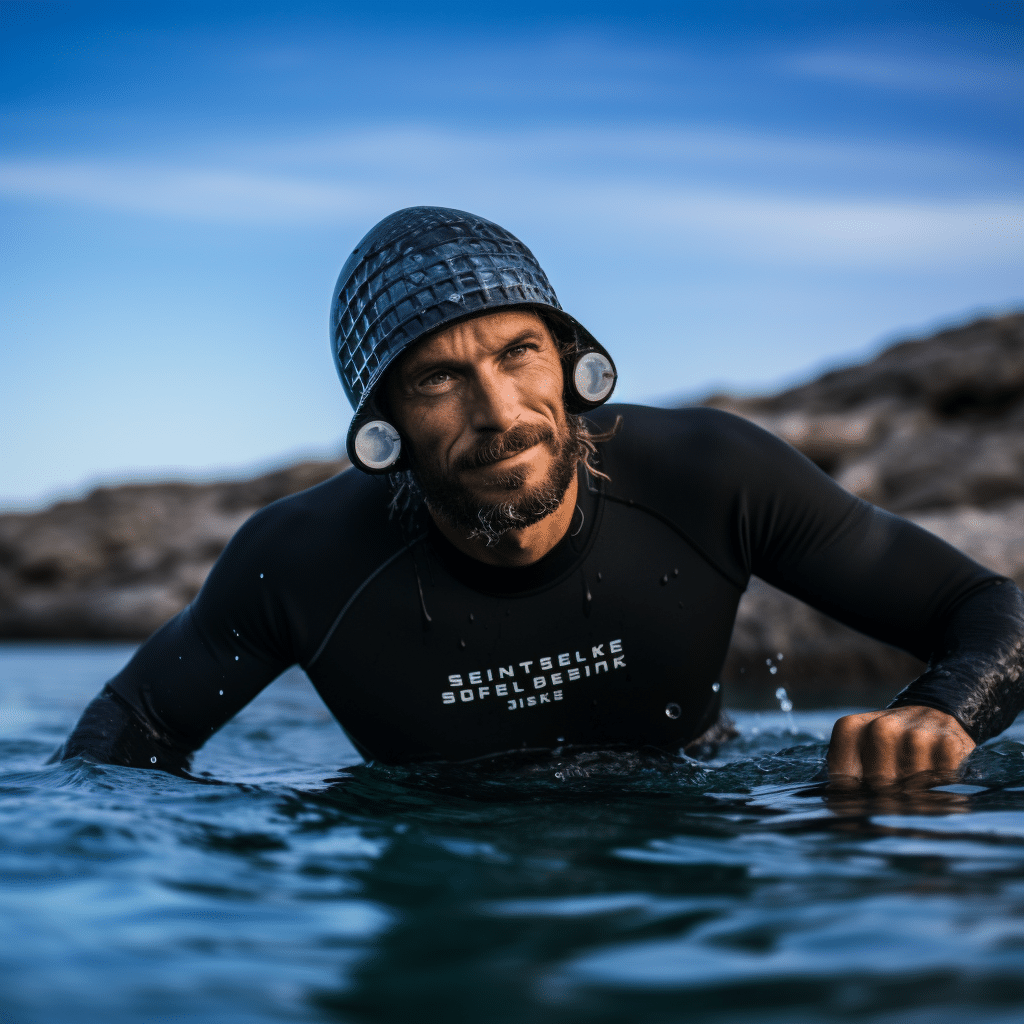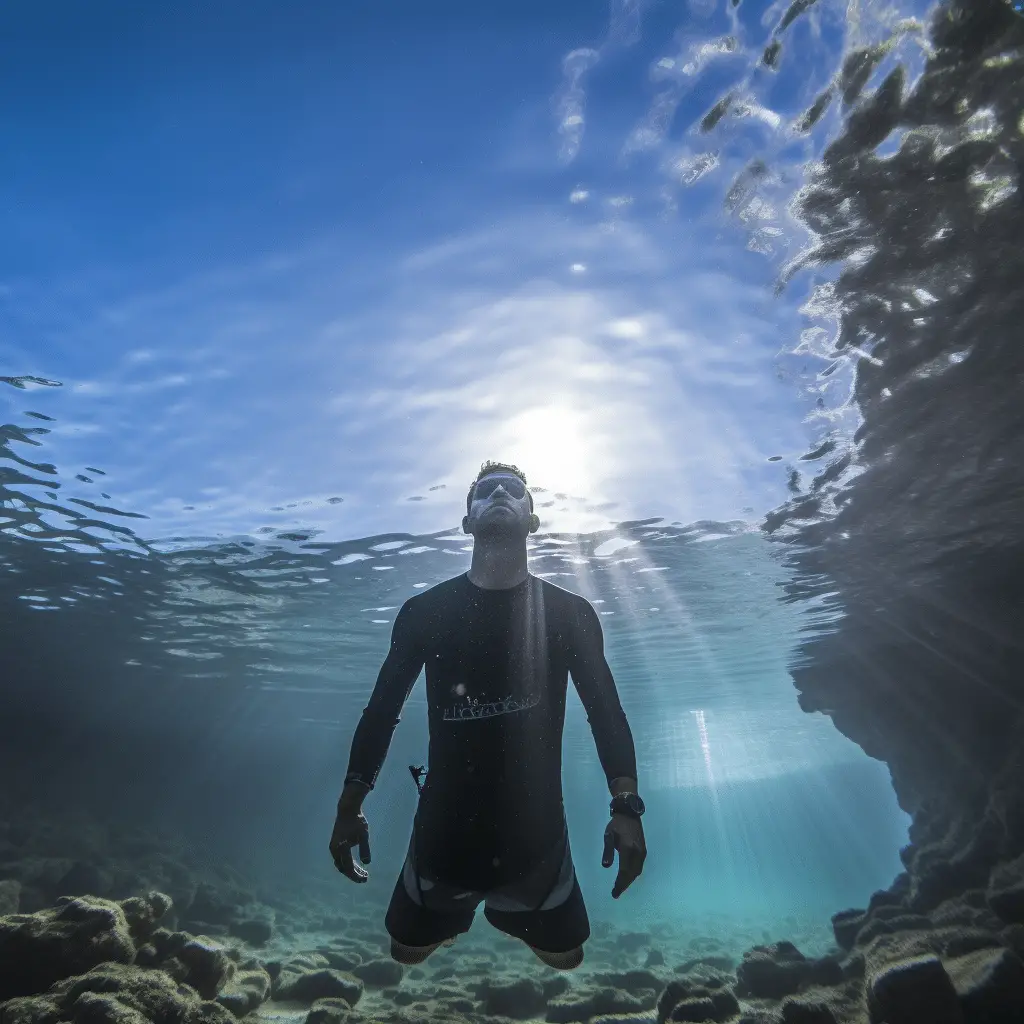For those that find scuba gear too intimidating, recreational diving can be in the form of freediving. It is another type of underwater sport that requires a different skill set than scuba diving. Experiences swimmers sometimes want to save money and skip certification or take a cheaper freediving course, which can have dangerous consequences. Freediving courses should be taken just as seriously as scuba diving courses, if not more.

What Is Freediving?
Freediving refers to a type of diving that does not require the use of any gear. Instead, divers rely entirely on their own breath. The experience is exhilarating, albeit physically challenging for some.
When compared to scuba diving, freediving sessions are much shorter, and divers cannot go to the same depths. However, there is a lot more freedom of movement, and the environment is relatively undistributed as there is no noise from scuba gear. One particularly pleasing aspect is the views during ascent. Hawaii is the best place for a freediving trip known for its amazing views. In scuba diving, the ascent includes a lot of bubbles due to the need for continuous exhalation. On the other hand, ascending freedivers have clear visibility because there aren’t any exhalation bubbles. Also, freediving techniques have a few health benefits due to improved lung capacity and breath control.
Freediving Vs. Scuba Certification
The certification for each diving practice differs wildly from the other. One important distinction is that scuba diving courses focus on handling scuba gear correctly to avoid any accidents and potential dangers. Freediving involves no gear, and thus courses focus on teaching divers how to handle their own bodies.
Freediving courses teach breathing techniques that are integral to a safe freediving experience. A large portion of the course and training involves training the diver in their breath-holding ability to increase lung capacity as much as possible. Freediving certification courses increase the diver’s ability to perform underwater.
The same agencies (PADI, NAUI, and SSI) offer scuba diving courses and freediving courses as well. Some instructors can effectively teach both practices, but a freediving instructor doesn’t have to know how to scuba dive.
Why Freediving Certification Is Important
The first and foremost reason to get certified is to ensure your safety while diving. There are no backup cylinders filled with breathable air in freediving, the only air you’ll get is right there in your lungs. You should be able to judge when the dive is near an end and ascend in time to avoid blacking out. Yes, improper training can lead to people fainting due to hypoxia, and there is a potential risk of drowning if there is no capable diving partner with you.
Safety reasons aside, a proper freediving course enables you to prolong your dive and enjoy it more. Experienced freedivers can reach deeper water and explore with more ease. Most freediving charters won’t include a diver with no certification because they cannot trust an uncertified freediver’s abilities. Groups and partners need to be able to depend on each other when freediving, so certification is a way to prove worthiness in such groups. It’s simple, certified freedivers are safer and keep the group safer as a whole.
Beware Of Instructions With No Agency
Some freediving instructors offer courses at a discounted rate and do not provide certification. Often they are former certified instructors that used to work at an agency (such as PADI or NAUI) but were stripped of their privileges, usually due to incorrect teaching practices.
These instructors might seem convincing at first and speak with some authority; Freediving certification courses, however, be very wary of these instructors because agencies didn’t shun them for no reason. There is usually a specific cause or trail of events that lead an agency to stop backing an instructor. For your safety and others in your freediving session, do not train with unlicensed instructors, even if they are cheaper.
Online Freediving Courses Aren’t Effective
Another way people skimp on their freediving courses is by trying to learn how to freedive online. Yes, YouTube videos can be informational, but freediving requires a lot more than simple instruction. When you’re watching an online video, the interaction is one-way communication. The instructor in the video has no idea how you are performing, and they cannot give feedback that is relevant to you. A freediving instructor should be with you when you learn to breathe and when you dive. They will be able to give you hints that are helpful in finding solutions to your specific problems. Because online courses cannot provide feedback, they are not considered effective. In fact, you can say they are dangerous.

What To Expect From A Freediving Course
When selecting a freediving course, it can be helpful to know what a credible course should offer. Most importantly, an instructor should demand that you reach a certain depth in order to qualify you for certification. In other words, there should be a test of your abilities at the end of your training, which you build up during the course. Of course, there should be varying levels based on a student’s ability.
These are other parts of the course you should expect:
- Theoretical lessons: The instructors should teach you how to relax in the water and answer any questions that students have regarding the diving process. Safety precautions should be thoroughly examined here. Many courses give an exam at the end of the theory portion of their course.
- Out of water sessions: Before ever going into the water, an instructor should teach breathing techniques out of the water. The most important skill here is to learn how to hold your breath and avoid hyperventilation before holding your breath. They should also teach you the proper method to end a breath-hold.
- Static breath holding: This breathing technique is essential to freediving and involves prolonging a breath-hold without any movement, relaxing in the water.
- Buddying: Trainers should encourage students to learn how to care for their peers and establish a buddy system. A freediver’s safety is partially in the hands of other freedivers, so this is an important part of training.
- Controlled and open water sessions: Your training should ideally begin in a pool, but any controlled environment is acceptable. The course should not move into open waters until you are confident in your abilities.
Freediving is an enjoyable recreational activity but carries potential safety risks. Certification is an important part of ensuring the safety of freedivers, as the activity is physically demanding and does not use any equipment. Unlicensed instructors should not be trusted, so freediving beginners should pay the extra cost of certification from a reputable agency to avoid risking their safety and the safety of others.
Now that you know about the freediving certification courses you may want to learn about the freediving benefits of using neck weights. Check out the article here to learn more.
